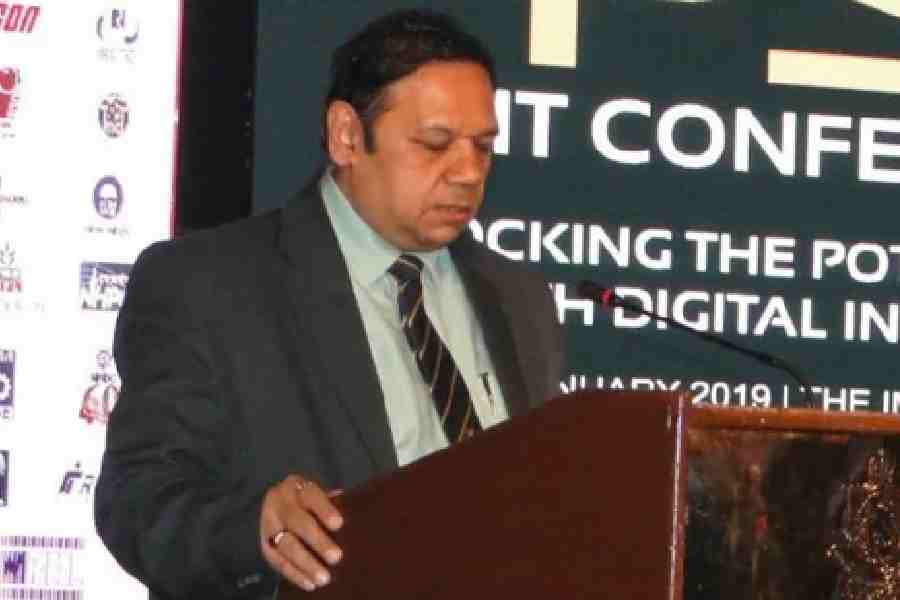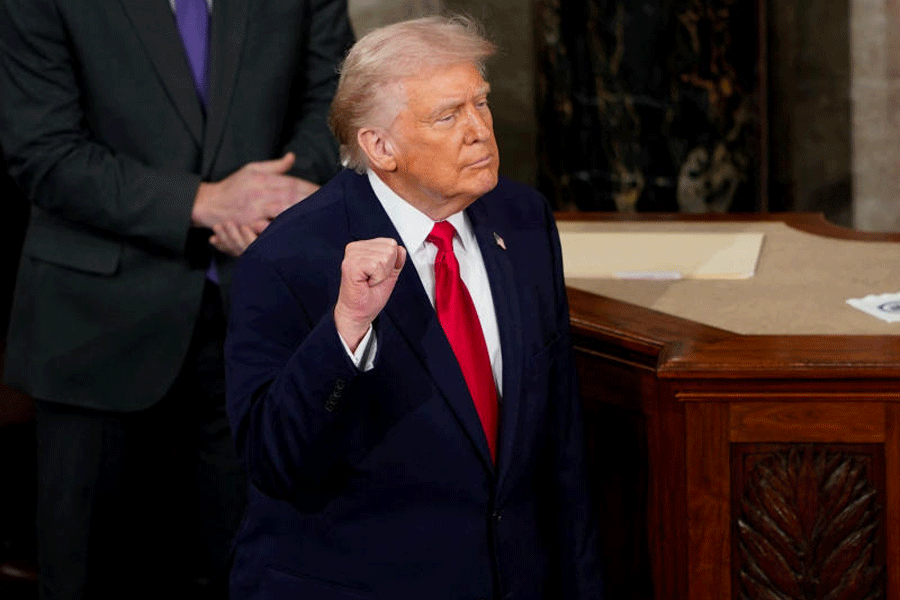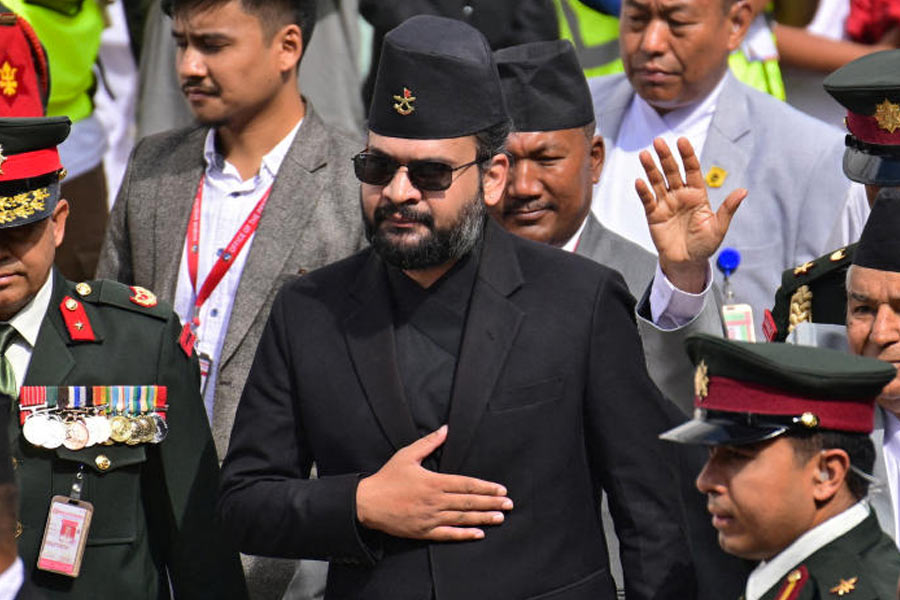 |
| Reliance chief Mukesh Ambani sounds the gong at the Bombay Stock Exchange to announce the listing of Reliance Petroleum in Mumbai on Thursday. (AFP) |
May 11: Private oil refiner Reliance Industries Ltd (RIL) today broke ranks with its state-owned counterparts and raised petrol prices by Rs 2.50 to Rs 2.92 per litre across the country.
The price increase becomes effective from midnight.
This is the first time that any refiner has decided to unilaterally announce a price increase even as the ministers in the UPA government have gone into a huddle to decide on the extent of the petroleum price hikes.
Reliance has not raised the price of diesel but it could do so if the government continues to dither on the price increase.
Although the Reliance spokesperson declined to comment on the development, sources said the company might raise the diesel prices in the near future. “The company is hoping that government will raise the prices shortly. If that does not take place, it might raise diesel prices also,” an industry observer said.
“Reliance has raised its ex-depot price of petrol by Rs 2 a litre. After adding taxes and other levies, the effective increase would be between Rs 2.50 and Rs 2.92 per litre,” said a source.
Reliance petrol pumps in Gujarat ? the state in which it has the maximum number of retail outlets ? sell petrol at Rs 47.02 per litre.
The prices of petrol and diesel were last revised in September 2005.
Reliance has 1,200 of the 31,500 retail outlets in the country and a 14 per cent market share.
The administered pricing mechanism (APM) ? a regime during which the government mandated price increases ?had technically ended in April 2002.
But in the past four years, none of the oil companies have had the temerity to raise prices without waiting for a clear direction from the government because of the sensitivity of the issue.
Reliance has become the first to do so ? taking advantage of the freedom that was given to the oil companies with the dismantling of the APM. Theoretically, the move was designed to allow the dynamics of the market to determine pump prices but it had never played out that way.
Reliance has been losing close to Rs 450 crore a month on diesel and petrol sales as global crude prices have continued to surge.
On Thursday, crude oil climbed above $73 a barrel boosted by worries over gasoline supplies in the United States as the peak demand summer driving season looms.
The Manmohan Singh government has been under pressure from the state-owned oil companies to raise prices of petrol and diesel because of their mounting losses. However, it held off on the price increase because of the Assembly elections in the key states of Bengal, Tamil Nadu and Assam.
Reliance has left diesel prices untouched so far because it is more price sensitive. Largely located on the highways, diesel contributes to the lion’s share of the sales from Reliance outlets. A rise in diesel prices would have virtually closed down their outlets.
However, the company was hoping that petrol sales would not be affected by great measures as it is adding additives to enhance engine performance in cars.
Industry sources believe that Reliance is trying to send strong signals to the government to raise prices.
Meanwhile, the confabulations within the government over the modalities of the fuel price hike continue.
On Thursday, petroleum minister Murli Deora met finance minister P. Chidambaram to press his case for a cut in the duty on crude oil imports in order to moderate the petrol and diesel price increases.
The finance ministry is willing to only concede a small duty cut ? and the petroleum ministry and the state-owned oil companies don’t think it will be sufficient to cushion the losses they have been suffering. Top finance ministry officials said only mild duty cuts were being considered.
“The interest of the common man will be protected. A price shock will be avoided,” officials said.
Deora is expected to meet the Prime Minister tomorrow to consider a variety of options after which a further round of discussions will be held with the Left leaders who have been bitterly opposed to a fuel price increase.










